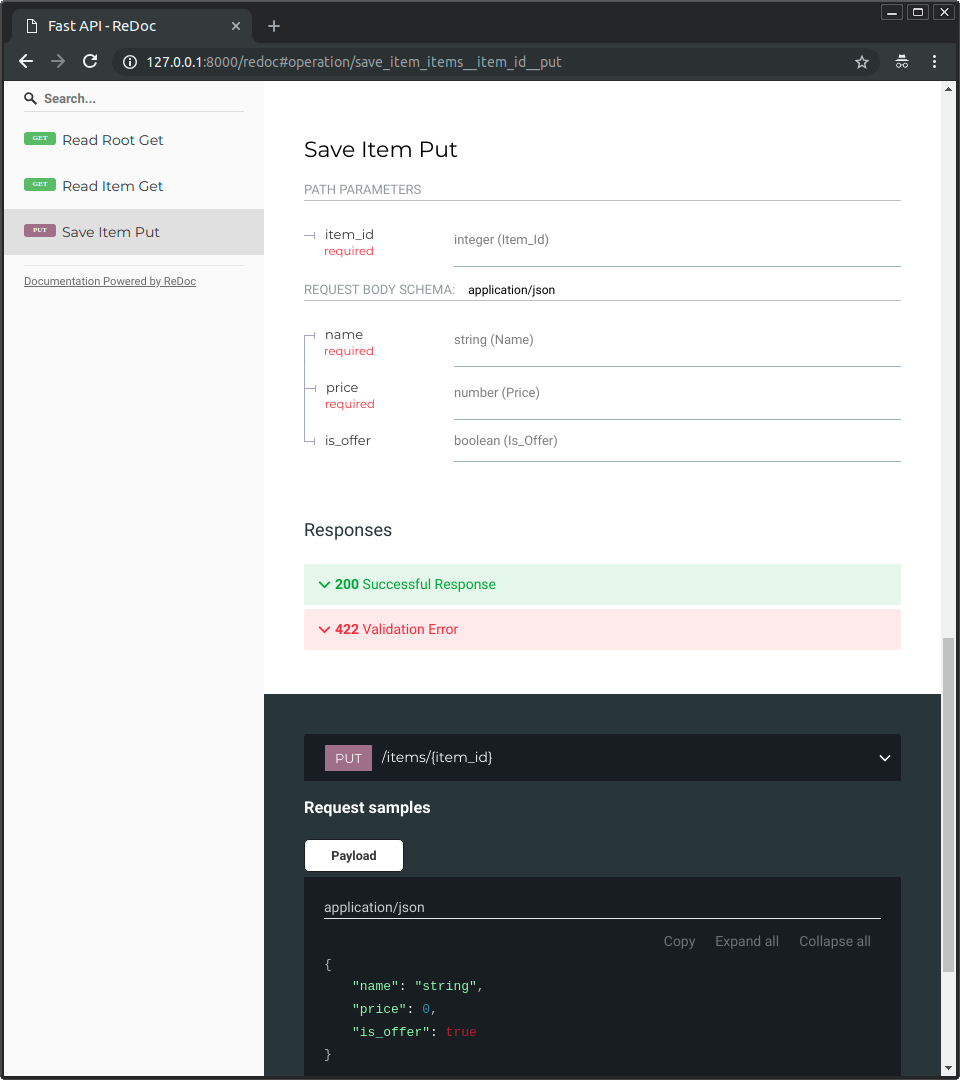- Sort Score
- Result 10 results
- Languages All
Results 11 - 13 of 13 for etc (0.14 sec)
-
docs/en/docs/index.md
 ### Recap In summary, you declare **once** the types of parameters, body, etc. as function parameters. You do that with standard modern Python types. You don't have to learn a new syntax, the methods or classes of a specific library, etc. Just standard **Python**. For example, for an `int`: ```Python item_id: int ```
Plain Text - Registered: Sun May 05 07:19:11 GMT 2024 - Last Modified: Thu May 02 22:37:31 GMT 2024 - 19.8K bytes - Viewed (0) -
docs/en/docs/tutorial/index.md
Using it in your editor is what really shows you the benefits of FastAPI, seeing how little code you have to write, all the type checks, autocompletion, etc. --- ## Install FastAPI The first step is to install FastAPI: <div class="termy"> ```console $ pip install fastapi ---> 100% ``` </div> !!! note
Plain Text - Registered: Sun May 05 07:19:11 GMT 2024 - Last Modified: Thu May 02 22:37:31 GMT 2024 - 5.9K bytes - Viewed (0) -
docs/en/docs/advanced/settings.md
# Settings and Environment Variables In many cases your application could need some external settings or configurations, for example secret keys, database credentials, credentials for email services, etc. Most of these settings are variable (can change), like database URLs. And many could be sensitive, like secrets. For this reason it's common to provide them in environment variables that are read by the application. ## Environment Variables !!! tip
Plain Text - Registered: Sun May 05 07:19:11 GMT 2024 - Last Modified: Thu May 02 22:37:31 GMT 2024 - 15.7K bytes - Viewed (0)